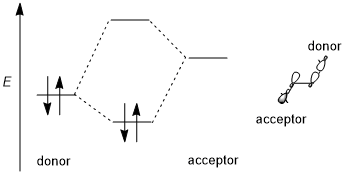According to a study published in the journal Biological Reviews, non-avian dinosaurs might have survived the impact of a large bolide about 66 million years ago if it had happened a few million years earlier or later.
 “There has long been intense scientific debate about the cause of the dinosaur extinction,” said Dr Richard Butler from the University of Birmingham, who is a co-author on the study.
“There has long been intense scientific debate about the cause of the dinosaur extinction,” said Dr Richard Butler from the University of Birmingham, who is a co-author on the study.
“Although our research suggests that dinosaur communities were particularly vulnerable at the time the asteroid hit, there is nothing to suggest that dinosaurs were doomed to extinction. Without that asteroid, the dinosaurs would probably still be here, and we very probably would not.”
“The dinosaurs were victims of colossal bad luck,” added Dr Steve Brusatte of the University of Edinburgh, the lead author on the study.
“Not only did a giant asteroid strike, but it happened at the worst possible time, when their ecosystems were vulnerable. Our new findings help clarify one of the enduring mysteries of science.”
Dr Brusatte and his colleagues studied an updated catalogue of dinosaur fossils, mostly from North America, to create a picture of how dinosaurs changed over the few million years before the asteroid hit.
The team found that in the few million years before a large bolide (comet or asteroid) struck what is now Mexico, Earth was experiencing environmental upheaval. This included extensive volcanic activity, changing sea levels and varying temperatures.
At this time, the dinosaurs’ food chain was weakened by a lack of diversity among the large herbivorous dinosaurs on which others preyed. This was probably because of changes in the environment and climate.
This created a perfect storm of events in which non-avian dinosaurs were vulnerable and unlikely to survive the aftermath of the asteroid strike.
As food chains collapsed, this would have wiped out the dinosaur kingdom one species after another.
The only dinosaurs to survive were those who could fly, which evolved to become the birds of today.
The scientists said if the asteroid had struck a few million years earlier, when the range of dinosaur species was more diverse and food chains were more robust, or later, when new species had time to evolve, then they very likely would have survived.
_____
Stephen L. Brusatte et al. The extinction of the dinosaurs. Biological Reviews, published online July 28, 2014; doi: 10.1111/brv.12128
This image shows two individuals of Qianzhousaurus sinensis and a small feathered dinosaur called Nankangia. Image credit: Chuang Zhao.
“Although our research suggests that dinosaur communities were particularly vulnerable at the time the asteroid hit, there is nothing to suggest that dinosaurs were doomed to extinction. Without that asteroid, the dinosaurs would probably still be here, and we very probably would not.”
“The dinosaurs were victims of colossal bad luck,” added Dr Steve Brusatte of the University of Edinburgh, the lead author on the study.
“Not only did a giant asteroid strike, but it happened at the worst possible time, when their ecosystems were vulnerable. Our new findings help clarify one of the enduring mysteries of science.”
Dr Brusatte and his colleagues studied an updated catalogue of dinosaur fossils, mostly from North America, to create a picture of how dinosaurs changed over the few million years before the asteroid hit.
The team found that in the few million years before a large bolide (comet or asteroid) struck what is now Mexico, Earth was experiencing environmental upheaval. This included extensive volcanic activity, changing sea levels and varying temperatures.
At this time, the dinosaurs’ food chain was weakened by a lack of diversity among the large herbivorous dinosaurs on which others preyed. This was probably because of changes in the environment and climate.
This created a perfect storm of events in which non-avian dinosaurs were vulnerable and unlikely to survive the aftermath of the asteroid strike.
As food chains collapsed, this would have wiped out the dinosaur kingdom one species after another.
The only dinosaurs to survive were those who could fly, which evolved to become the birds of today.
The scientists said if the asteroid had struck a few million years earlier, when the range of dinosaur species was more diverse and food chains were more robust, or later, when new species had time to evolve, then they very likely would have survived.
_____
Stephen L. Brusatte et al. The extinction of the dinosaurs. Biological Reviews, published online July 28, 2014; doi: 10.1111/brv.12128
